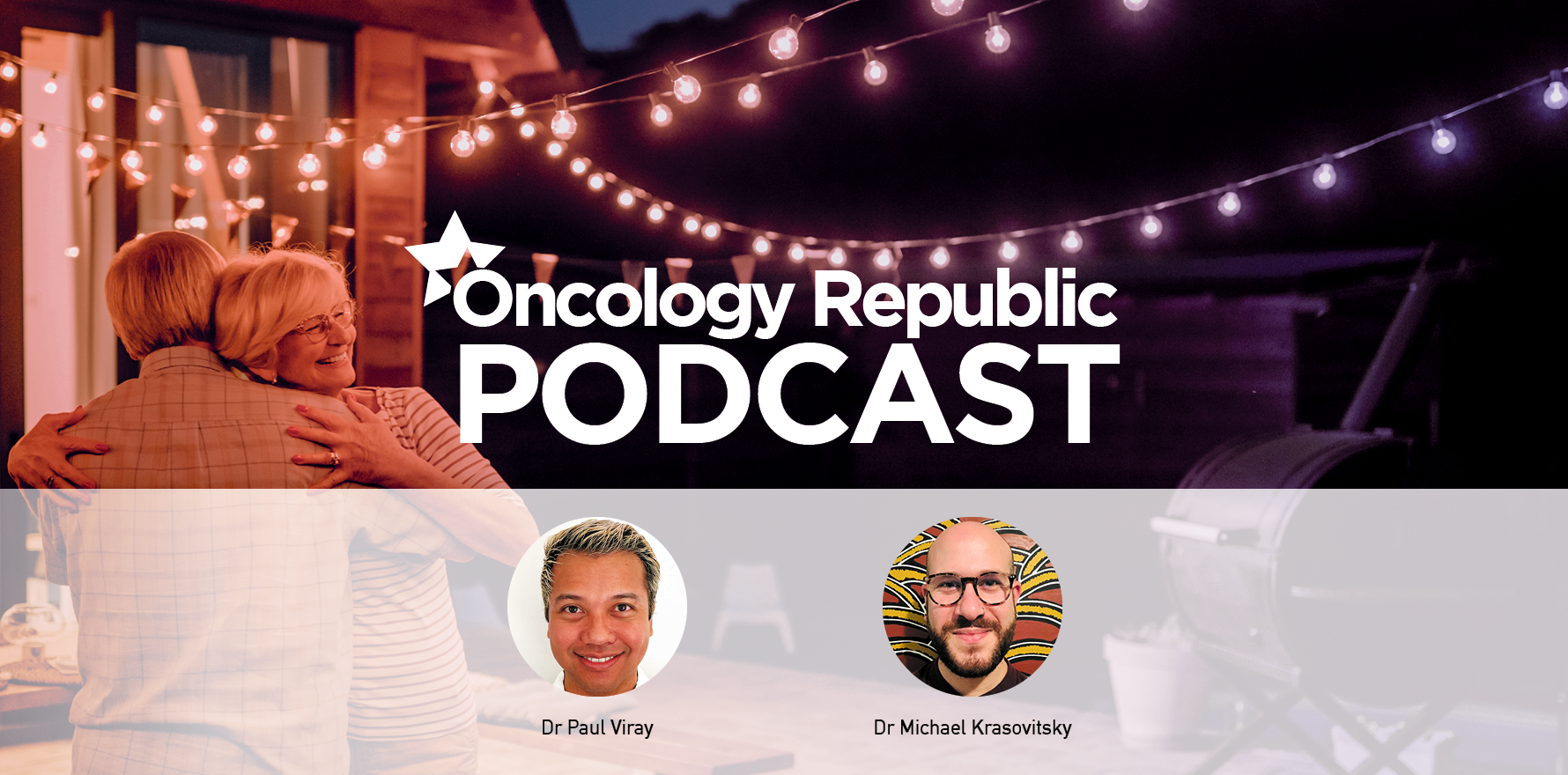Taking the time to get a complete picture of a person’s health can pay off in spades down the line.
Comprehensive geriatric assessment aids clinical decision making and has numerous benefits for patients. But what is it, and how do you get started?
In this episode we dig into the finer points of using comprehensive geriatric assessment in the management of older people with cancer.
Dr Paul Viray, a Melbourne-based consultant geriatrician and medical oncology registrar, feels there are misconceptions about what a comprehensive geriatric assessment is. He describes it more of a specific approach to medicine, rather than a specific tool or set of forms.
“The comprehensive geriatric assessment is the method of holistically going through all aspects of an older person’s life and finding out how to optimise each of those things, [such as] continence and cognition, how many medications they’re taking, what their mobility is like, their falls risk, their nutritional status.”
Dr Michael Krasovitsky, a medical oncologist at the Kinghorn Cancer Center at St Vincent’s Hospital in Darlinghurst, has worked closely with colleagues at the Cancer Institute NSW to make it easier for clinicians to access evidence-based screening tools that can be used in geriatric screening. He is pleasantly surprised by the results of their efforts.
“Registrars who I’ve been working with have all used the tool, and a number of my [other] colleagues have also used the tool. And even more impressively, in my mind, the non-medical oncology people I work with, including surgeons and radiation oncologists have also used the tool… and then using that as an opportunity for us to brainstorm what we’re going to do with that information [has been] extremely powerful.”
Dr Viray has been developing his own approach to comprehensive geriatric assessment, which he hopes will break down some of the barriers between different specialties.
“There’s this siloing of specialties, so geriatricians do this, cardiologists do that. Oncologists do this, radiation oncologists do that. If we work together, I think that would take away some of the angst oncologists [have], and [to build] another workforce to help our oncologists.”
If you are interested in joining or would like more information about the Clinical Oncology Society of Australia’s Geriatric Oncology Community of Practice, please contact Dr Paul Viray via thevirayway@gmail.com.
You can listen and subscribe to the show by searching for “The Medical Republic Podcast” in your favourite podcast player.


